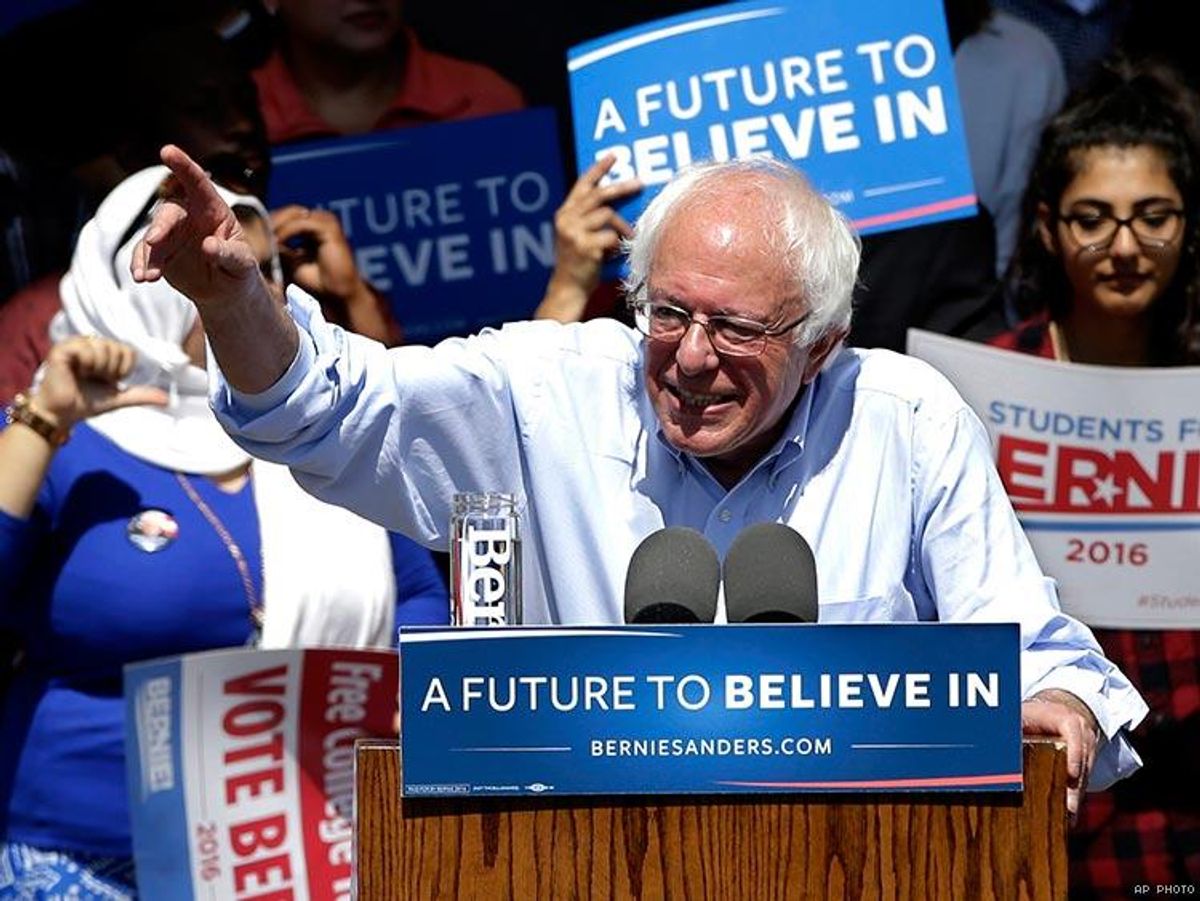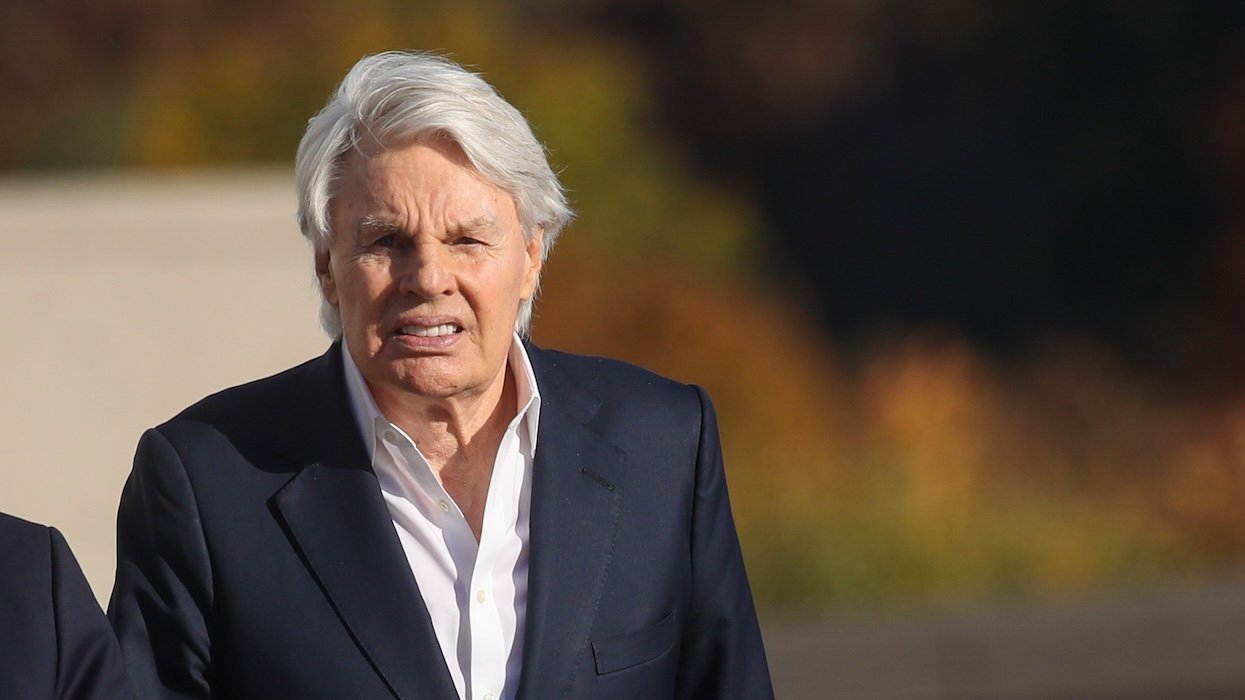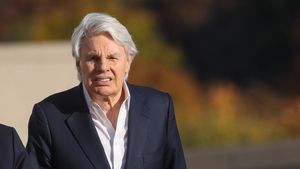U.S. Sen. Bernie Sanders of Vermont has won the Democratic presidential primary in West Virginia, major news sources report.
The state has 29 delegates at stake, and they will be divided among Sanders and former Secretary of State Hillary Clinton according to their proportion of the vote. So far Sanders has been awarded 16 delegates and Clinton 11, according to the Associated Press.
The race was called for Sanders shortly after polls closed at 7:30 p.m. local time. Much later, with 95 percent of precincts reporting, he has 51 percent of the vote, Clinton 36 percent.
Sanders hailed his victory while speaking at a rally in Oregon, which holds its primary next week. To supporters in Salem, he touted the diversity of the U.S. as an asset, contrasting his views with presumptive Republican nominee Donald Trump's.
"Mr. Trump will not become president because the American people understand that our our strength is in our diversity," Sanders said. "We are a great nation because we are gay and we are straight. We are a great nation because we are women and men."
He also contended that he is more likely than Clinton to beat Trump. "It is not only in national polls where we defeat Donald Trump by bigger numbers than Secretary Clinton, it is state poll after state poll after state poll," he said.
He noted that his campaign has been an uphill fight, and he compared it with the LGBT rights struggle, which he said has surmounted incredible odds.
Sanders, who was expected to win the state, started the day with 1,453 delegates -- 1,414 pledged from primaries and 39 superdelegates, who are elected officials and party leaders free to support the candidate of their choice. Clinton started with 2,228 -- 1,705 pledged and 523 superdelegates.
Democratic Party leaders, along with some commentators, pointed out that Sanders's battle remains an uphill one. "I feel confident that Hillary will be the nominee and I feel confident she'll be the next president," Vice President Joe Biden told ABC News. Biden, who considered a run for the nomination himself, has not endorsed either Sanders or Clinton.
Republican leaders, however, took jabs at Clinton. Republican National Committee chairman Reince Priebus tweeted the following:
Clinton's comments about the coal industry may have hurt her in West Virginia. In a campaign stop last week, she& apologized for comments about one of the most important industries in the state. She had said, among other things, that she would "put a lot of coal miners and coal companies out of business" while developing cleaner energy sources.
"It was a misstatement because what I was saying is the way things are going now, they will continue to lose jobs," she said. "It didn't mean that we were going to do it. What I said is that is going to happen unless we take action to help and prevent it."
Also, Clinton, who had been focusing on the general election and hadn't taken out any advertising for last week's Indiana primary -- which Sanders won -- has resumed ad buys, The New York Times reports. Her campaign has bought "roughly $175,000 worth of television advertising in Kentucky to air in the next week," sources told the Times. The state's Democratic primary will be May 17.
Nebraska was also holding a Democratic primary today, in which Clinton leads Sanders 53 percent to 47 percent with 95 percent of precincts reporting, but its results do not affect delegate selection. Nebraska delegates were allocated by a caucus March 5, with 15 going to Sanders and 13 to Clinton, as he won the caucus by 57 percent to 43 percent.
Watch Sanders's speech below.
This story is developing. Check back for updates.


















































































